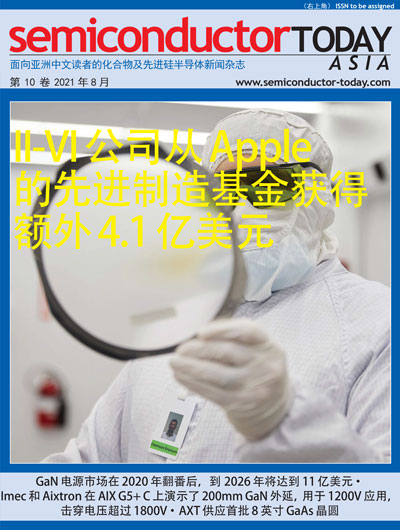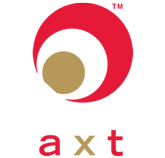- News
8 January 2013
Excess capacity in sapphire substrates to trigger ‘massive consolidation, attrition’
Significant overcapacity and low LED substrate prices will affect the profitability and viability of many sapphire players in 2013 and beyond. So says a new market report ‘Sapphire Substrates 2013’ from analyst company Yole Développement of Lyon, France. However it is not all bad news, as Yole’s report also concludes that “emerging applications could transform the industry”.
Released at the end of December, the report provides an analysis of the sapphire industry, including revenues, volumes and price trends for all major substrate applications. It also includes a list of manufacturers with current and planned capacity, and an analysis of established and emerging manufacturing technologies. The drivers and dynamics of the LED and SoS markets are analyzed, and a preliminary view and plausible scenario are provided on emerging non-substrate applications in cell phones. Authored by Eric Virey (who has a PhD in optoelectronics from France’s National Polytechnic Institute of Grenoble and who previously worked in manufacturing and marketing positions with Saint-Gobain), the report is priced at €3990 for a single-user license.
Yole says that the sapphire material shortage experienced from 2010 to early 2011 created “a window of opportunity for new entrants”. In the past two years, more than 80 companies announced their intention to enter the industry, bringing the potential number of players to more than 130 – with more than 50 of these potential new entrants located in China.
Coupled with slow demand from LED makers in 2012, this situation created a “very challenging environment”, according to the report, with cores and wafers often selling at prices at or below manufacturing cost. Revenues increased 15% in 2011 but are expected to have fallen 9% in 2012 due to lower average selling prices (ASPs), despite volume increases and a favorable product mix – with the percentage of PSS (patterned sapphire substrate) wafers increasing dramatically.
Yole says that these difficult market conditions “will trigger an industry rationalization through consolidation and attrition” that should take place in 2013 and 2014; activities that the Yole Finance business unit will be monitoring closely. In the long-term, as the environment remains extremely competitive, Yole Développement’s team expects the [sapphire substrate] industry to evolve toward a more vertically integrated model in order to limit margin stacking. A handful of tier-1 worldwide leaders should emerge from this rationalization, along with smaller tier-2 regional players.
Yole’s report presents both historical and future price trends for materials and finished wafers, as well as a detailed supply/demand analysis. Volume forecasts are presented for material, standard and PSS wafers, along with a revenue forecast for finished wafers.
LED-on-Si: a looming threat
Report author Eric Virey (who is also senior analyst, LED, at Yole) commented, “All major LED makers are currently exploring opportunities for transitioning from a sapphire-based technology platform to a silicon-based one (so-called ‘LED-on-Si’). This interest is driven by a potential cost savings of up to 60% at the die level.”
But while significant progress has been made, the technology still faces hurdles, and it remains to be seen whether the leading proponents of LED-on-Si, like Bridgelux/Toshiba and Lattice Power, will be able to tackle all of the remaining challenges and transition to mass manufacturing in a cost-effective manner.
For most other LED companies, LED-on-Si is often an important development axis, but not a necessary milestone on their manufacturing roadmap. The jury is still out, but in the meantime investments in the large-diameter sapphire platform are often postponed pending the outcome of LED-on-Si.
In the report, Yole also presents an in-depth analysis of the requisite conditions for the success of LED-on-Si, and reveals how GaN could capture some niche markets thanks to higher performance and competitive system-level cost of ownership.
Other market-related headlines include “SoS to provide welcome upsides” and “Could cell phone windows be the next killer application?”. The silicon-on-sapphire (SoS) application could represent a nice upside for the happy few that enter the supply chain, Yole forecasts. Demand more than doubled in 2012 and could do the same in 2013. For example, leading SoS company Peregrine has developed a compelling antenna switch technology that has already achieved vast success in smart phones.
This company benefits from strong macro trends in the cell-phone market and is developing new components that could further increase not only SoS content per phone, but also wafer demand. Opportunities for these new components (power amplifiers and tunable capacitors), as well as for competing technologies developed by companies such as Paratek (now part of cell phone maker RIM), may bring new volume applications to sapphire wafer manufacturers.
The significant capability and capacity build-up and dramatic cost reduction achieved by the sapphire industry in the past three years could open the door for a whole new range of applications. Amongst these, the use of sapphire for small display covers has the potential to be a game-changer and raise the sapphire industry to a completely new level. Despite significant hurdles in terms of cost and manufacturing technologies, all major cell-phone OEMs are currently investigating this option. While mass adoption remains uncertain, it is not completely unrealistic – and, due to the current dire situation of their LED-related business, most sapphire makers are eager to help it materialize.
By Matthew Peach, a contributing editor to Semiconductor Today




